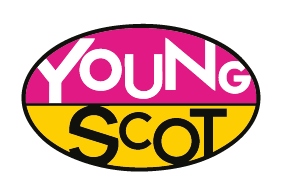Pupils reveal sleep and supportive teachers as top priorities for quality learning
Young Scot research has revealed the key priorities for learning confirmed by young people with over two thirds of pupils identifying good sleep, supportive teachers and the right attitude as crucial.
The survey, devised to help improve outcomes for children and young people impacted by poverty, identified what pupils considered essential to be ready to learn and the barriers they face, including access to resources, feeling valued and disruptive classrooms.
Respondents, aged 11-25, selected good sleep (64%), the right attitude (63%) and supportive teachers (61%) as the top components of what they need to be ready to learn. Disruptive behaviour, motivation and mental health were identified as the main barriers to learning.
A 17-year-old from Midlothian said:
“You can have as favourable environmental conditions in the classroom as you like, or the best teacher in the school or well-organised and detailed notes. However, if the most crucial time, in person teaching time, is disadvantaged by disruptive classmates, it really does hinder my learning process.”
A 16-year-old Perthshire pupil added:
“Not having enough sleep is an issue for me as I struggle to get to sleep, so when I get to school, I am too tired to remember anything so when tests come, I sometimes don't know what I'm doing.”
A 14-year-old from Glasgow said:
“My school has a lack of opportunities and resources. I often find the learning too slow or too fast and have my struggles ignored by teachers that refuse to elaborate. It makes me lose motivation for school and avoid going because I feel I cannot be productive enough there.”
Other comments highlighted ‘being too tired to focus’, ‘not having enough sleep’ and ‘anxiety and stress impacting motivation’.
Nearly three quarters of the 1,035 respondents said the COVID-19 pandemic impacted their readiness to learn and 47% reported their learning being affected by the cost of living crisis – 37% said this was related to affording food and basic essentials with one pupil stating ‘having no money to buy books or things I need’.
A 17-year-old student from Stirling said:
“I didn't want to ask for new school shoes for instance because I didn't feel I could put that strain on my mum but if she noticed my shoes were looking bad she would insist on buying them even though I could hear the stress in her voice.”
This report will contribute to work to tackle the Scottish Attainment Challenge and help to inform education providers and other providers on how young people can best be supported to engage in education.
Young Scot has supported a diverse group of young people (YSEquity Panel) to ensure equitable space for conversation between young people and decision makers, to influence the Scottish Attainment Challenge programme on key areas including factors that can contribute towards a readiness to learn. The work of the panel contributed to the development and delivery of the What I Need to Learn survey.


